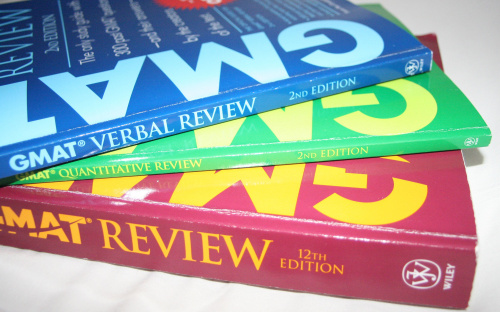The new figures are one indicator of growing demand for business education, after young managers have in recent years questioned the time and monetary commitment of a traditional MBA degree.
They come as applications to the very top schools this year showed signs of growth, led by the Kellogg School of Management, where applications to its two-year MBA program leapt 6%.
That’s despite a growing divide among highly-ranked and second-tier US schools, which witnessed declines to applications this year.
Some 261,248 GMAT tests were sat through 2016, up from 247,432 in 2015.
The increase is driven by Asia, where exams taken rose from 111,101 to 124,910 in a year.
The data will also be welcome news for GMAC, whose admissions test has shown signs of waning demand, while rival exam the GRE has grown volume by more than 13% since 2009.
In 2015, the latest year for which data are available, graduate business GRE volume grew by 7% compared with 2014.
On Monday, a survey from Kaplan Test Prep showed a record 92% of business schools now accept the GRE as an alternative to the GMAT.
Not only are the number of GMAT tests taken on the rise, but average scores are too, up by 10 points from five years ago.
The increase in driven by a greater proportion of Chinese and Indian test takers, who have historically scored higher on the GMAT, said Ashok Sarathy, vice president of product management at GMAC.
This suggests that it is getting even tougher to get into the very best business schools.
"For global MBA applicants, these dynamics have produced a more competitive cohort of applicants," says Ashok.
At Chicago's Booth School of Business, GMAT scores hit 750 on average for 2016-17, up from 726 just a year before.
At Harvard Business School, average GMATs rose from 725 in 2015 to 730 this year. At Stanford's Graduate School of Business, GMATs went up from 733 last year to 737 in 2016.
But "the GMAT is just one piece of the mosaic, and we’re looking at all the pieces," says Chad Losee, managing director of MBA admissions and financial aid at Harvard Business School.
While scores are surging at some schools, GMAC reported a decline in the overall number of score reports sent.
This is because there's been a big rise in the number of people who are cancelling their GMAT scores, from 2% prior to 2015 to 27% this year.
In 2014, GMAC began letting MBA candidates preview their scores before deciding whether to accept or discard them.
Faced with an undesirable score, more MBA applicants are simply cancelling their results and re-taking the test.
Chioma Isiadinso, co-founder and CEO of admissions consultancy Expartus, says: “Now they are able to, they take advantage of it.”
Chioma advises applicants who want to get into a top-10-ranked school to retake the GMAT even if they score a 700. “If you’re competing with the very top schools, the top-10, honestly, a 700 will be seen as low.”
She adds: “Some people can go up 30 points if they retake the GMAT and that can be the difference between whether you make it past Round 1 of the admissions process, or not.”
RECAPTHA :
a8
2c
2c
61








